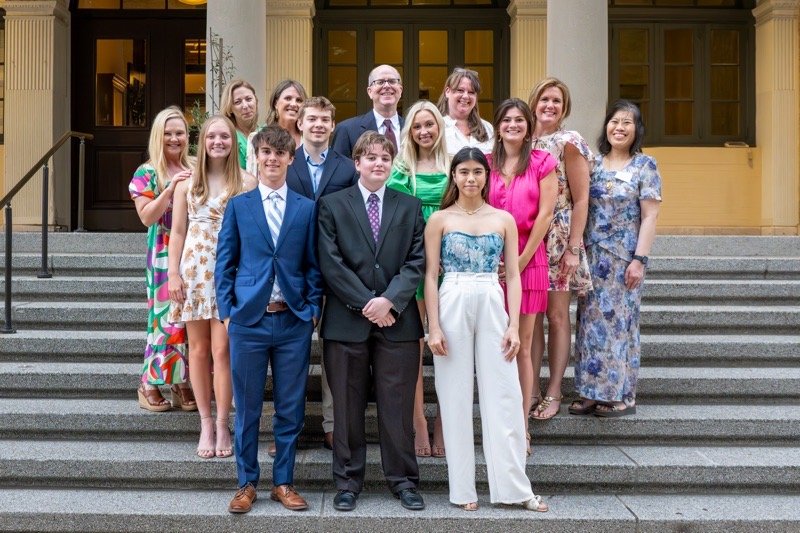- Admission
- Discover Episcopal
- Our Program
- Athletics
- Arts
- Spirituality
- Student Life
- Support Episcopal
- Alumni
- Parent Support
- Knightly News
- Contact Us
- Calendar
- School Store
- Lunch Menu
- Summer Camps
- Knight Under the Stars
- Chicago Tickets
- PowerSchool Notice
« Back
The Myth of the Lazy Summer
July 10th, 2017

“And so with the sunshine and the great bursts of leaves growing on the trees, just as things grow in fast movies, I had that familiar conviction that life was beginning over again with the summer” F. Scott Fitzgerald
Summers as a child in the rural Midwest seem more idyllic than they probably were. My memory has filtered these long days into picturesque snapshots: more time in water than on dry land, rickety rides at the “Heart of Illinois” fair, s’mores and bass fishing at Cedar Lake in Aitkin, Minnesota, dinner outside. It was never too buggy, or humid or rainy, it seemed, to miss out on strawberry rhubarb pie or a true midwestern delicacy, corn on the cob.
I don’t recall most of the details now on my mind as the mother of small children: Did I ever wash the chlorine out of my hair or was it just always green? Did I ever reapply sunscreen? Or bug spray? Did I even drink water? Eat a green vegetable? Finish my summer reading?
But, this is the beauty of childhood and memory and summer. It feels easy and simple--at least after the fact, or at least for me coming of age in the mid-late 90s.
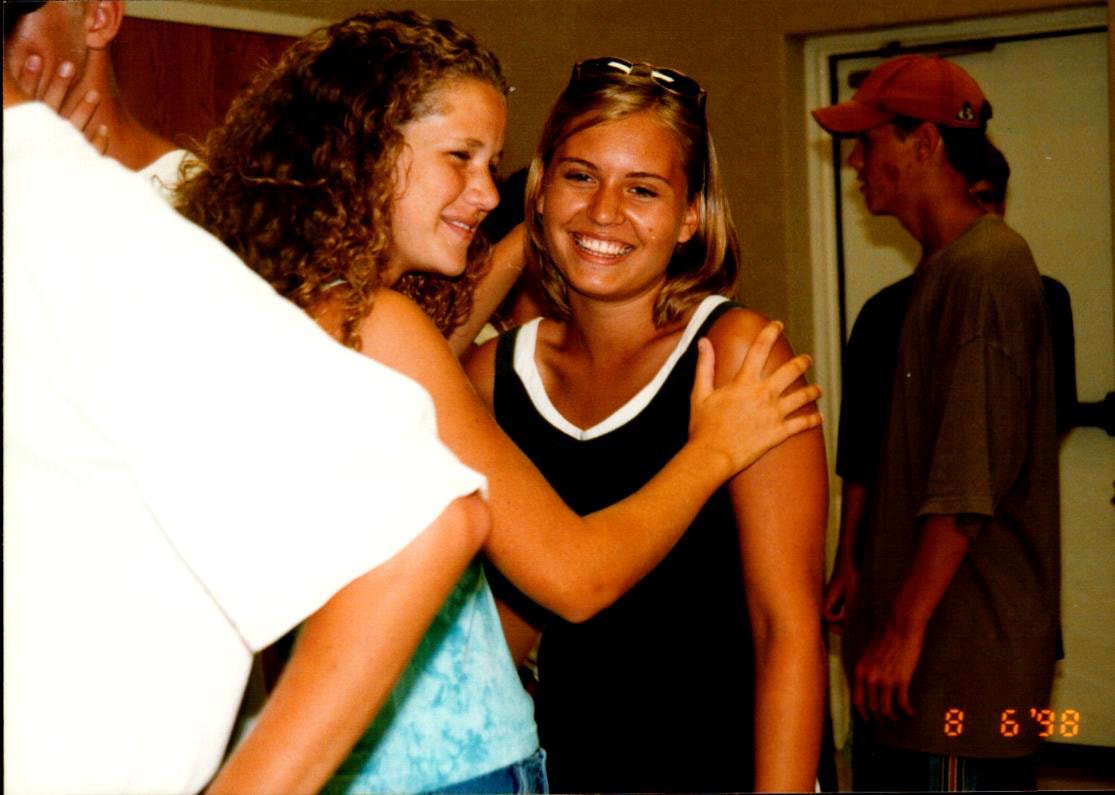
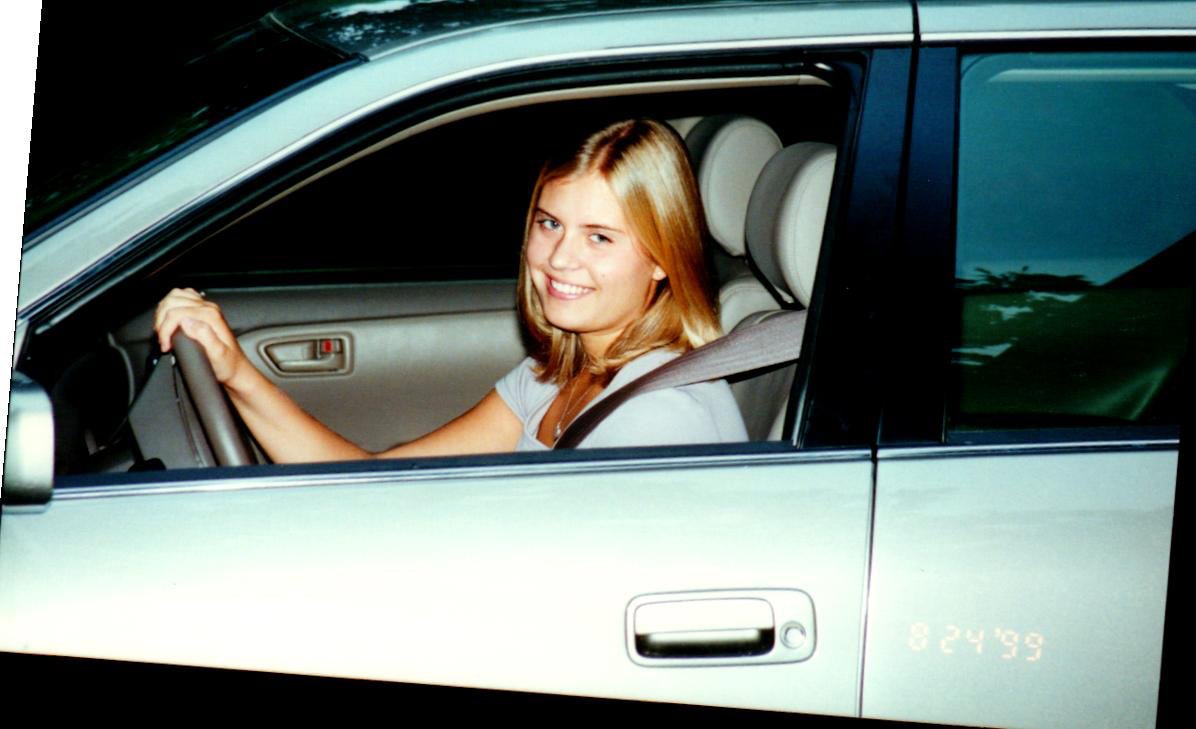
I started reflecting on summers as a teenager early this July when the weight of this fact hit me: my students were about to begin a third week of voluntary work sessions at school to research, write, and conference about their thesis projects. This year begins my sixth involved with the Thesis program, and I finally recognized just how much I admire the way our students embody Episcopal’s mission even when, especially when, we’re apart.
Cliche sitcoms and sentimental marketing might lead you to believe that summer for teenagers is a wasteland of video games, sleeping the day away, and luxuriously unstructured time that is listless and aimless. But from my view, that trope doesn’t tell the full story. When I really think back on my own summers as a teenager, I know there was much more activity than my immediate memory recalls. Still, even between summer jobs, music camps, and devouring books, I know for certain that I did not pursue the sorts of opportunities and passions as fervently as Episcopal students.
Leisure time was once the marker of true wealth and advantage, though this recent article in The Atlantic describes a new American “status symbol”: busyness. Silvia Bellezza, Columbia Business School professor and researcher explains this phenomena she has been studying, noting that neither extreme, constant leisure or incessant working, makes for a healthy person or society. Instead, according to Bellezza, a balance of work and play is desirable, though often tough to negotiate in reality.
But, what I’ve noticed from my students, especially this summer, is the way many of them have seemed to naturally broker a pretty healthy arrangement. There is certainly active effort and learning involved in many of these experiences, be it reading or camp or internships, thesis writing or college visits or a language immersion experience abroad. But what energizes me is that I notice a joyful attitude toward these opportunities and toward the work itself: it is meaningful and fulfilling because it comes from a place of choice and intention.
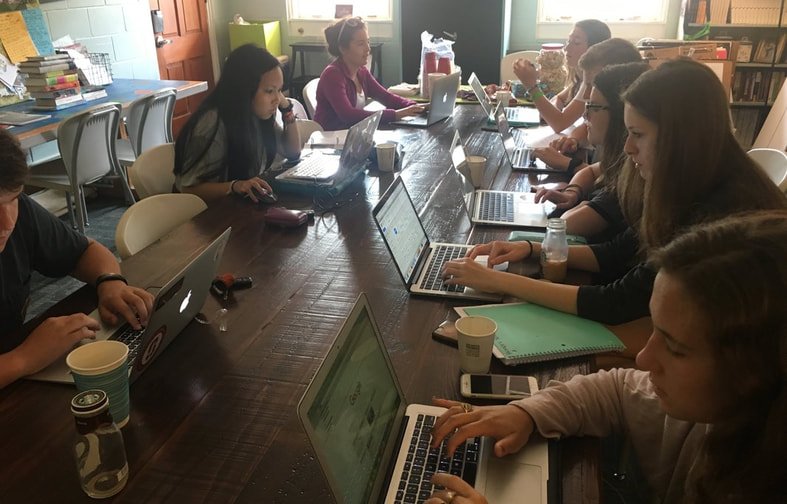
Take these eight caffeinated kids sitting around the seminar table. Each of them is pursuing an area of research that taps into a curiosity and passion they can’t get out of their mind. There is focus, sometimes frustration, and serious contemplation, to be sure. But, there are plenty markers of play and community, too. I hear hearty belly-laughs as someone refills a cup of cold brew and throws a friend a granola bar and genuine inquiries about how each person’s project is coming along.
Before this week, some of them unplugged entirely at camp, taking a much needed break from the often punishingly perpetual stream of snapchat stories. And before that, some of them were at Girls or Boys State, passing bills that reveal innovative solutions to many of our challenges. Whatever the activity may be, this break from the barreling-forward school schedule gives older teenagers some independence to structure their time with a bit more autonomy. There is important developmental work happening here when these adolescents are given the chance to pursue their own agenda just a bit more.
Of course, I hope that there is time, too, for sleep and swimming and the gloriously idyllic pictures of summer that will become romanticized in their memories. But, I’m heartened that the busy days are filled with welcomed “work” that might further help our students uncover more about who they are in the pursuit of our mission’s ultimate goal: purposeful lives.
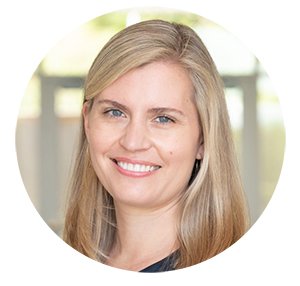
Katie Sutcliffe
Katie Sutcliffe joined Episcopal in 2011 and is currently the Director of the Writing Center and Thesis Program, as well as the co-creator of LAUNCH, Episcopal’s annual TEDx-style student-planned and executed showcase of ideas and projects. Katie holds a Bachelor of Arts in English (Writing) from DePauw University, an MFA in Creative Nonfiction Writing from the University of Pittsburgh and was a 2005 Teach For America corps member. Katie currently serves as the Southeast Representative for the Secondary Schools Writing Center Association Board. She has taught English and writing courses for middle and high school students, gifted students and even continuing-education adults. She’s passionate about research and writing that have practical implications for understanding and addressing real world challenges.
The Episcopal School of Baton Rouge 2025-2026 application is now available! For more information on the application process, to schedule a tour, or learn more about the private school, contact us at [email protected] or 225-755-2685.
Other articles to consider
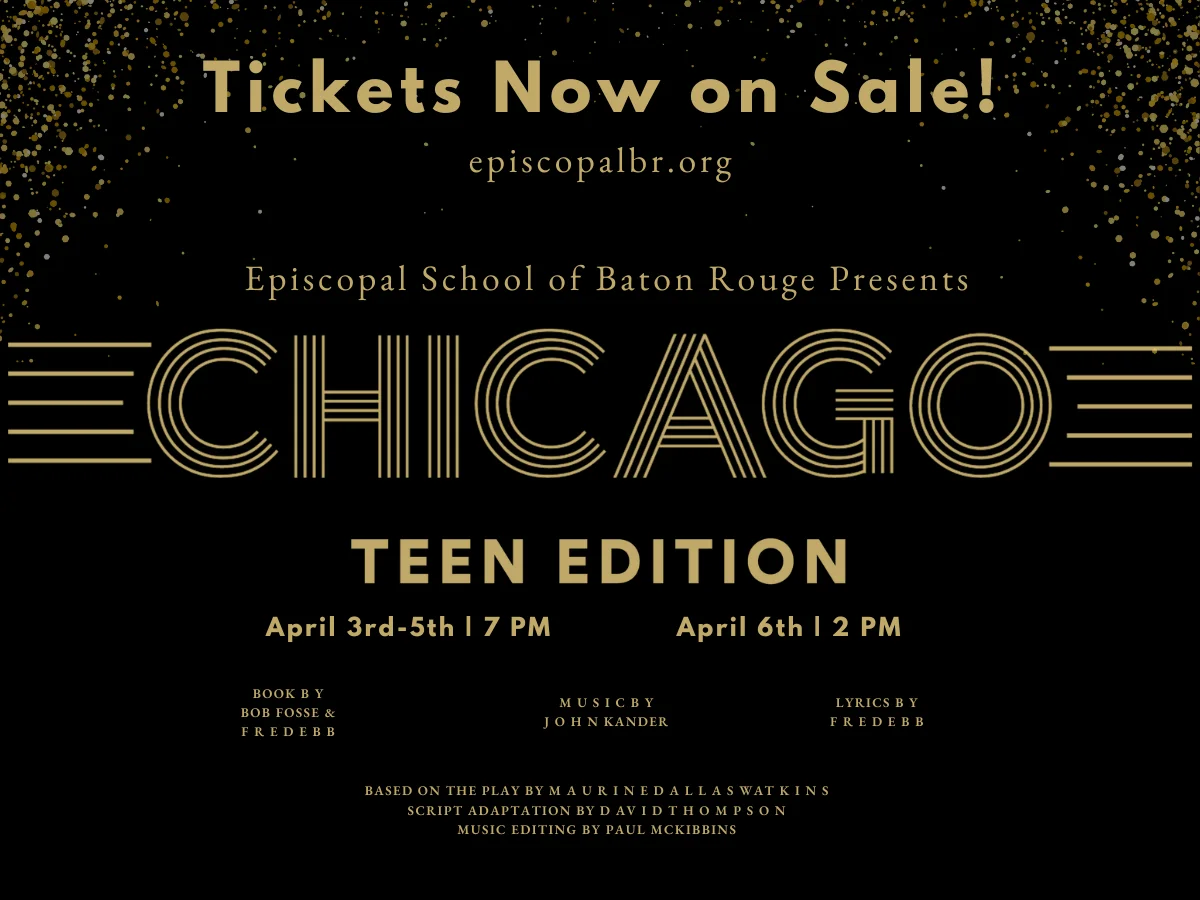 Mar27Episcopal Presents "Chicago: Teen Edition"
Mar27Episcopal Presents "Chicago: Teen Edition"Don’t miss the Upper School spring musical “Chicago: Teen Edition”! With dancing, singing, a true crime theme and a 12-piece professional orchestra, this PG-13 presentation is sure to impress. Shows run April 3-6—get your tickets today!
See Details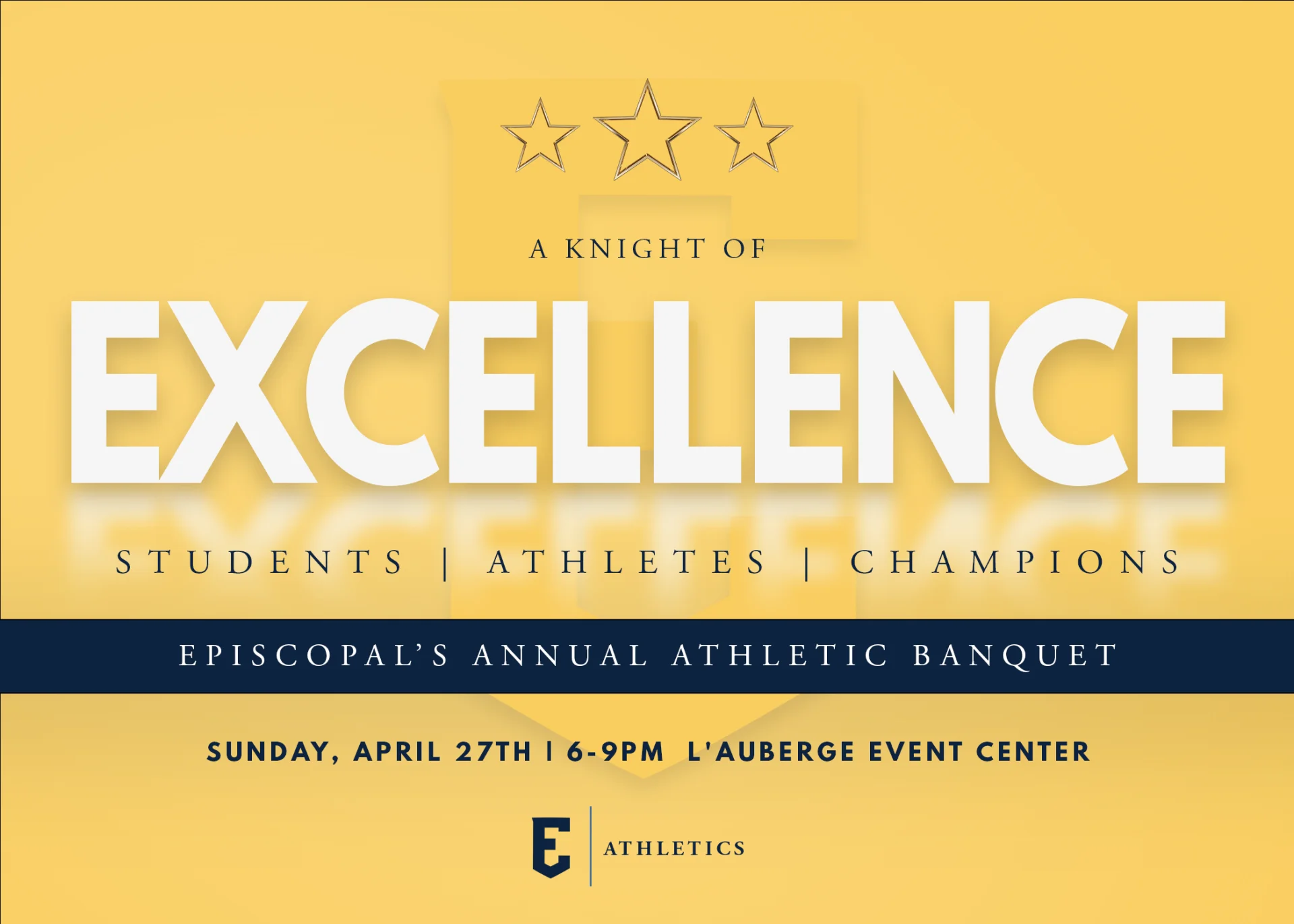 Mar27Episcopal Announces "The Knight of Excellence" Athletic Banquet
Mar27Episcopal Announces "The Knight of Excellence" Athletic BanquetCelebrate Episcopal's top athletes at the Knight of Excellence on April 27th! Join us for an inspiring evening of awards, recognition and community.
See Details Mar26College Announcements 3.28.25
Mar26College Announcements 3.28.25Please join us in congratulating members of the Class of 2025 as they announce their college enrollment decisions.
See Details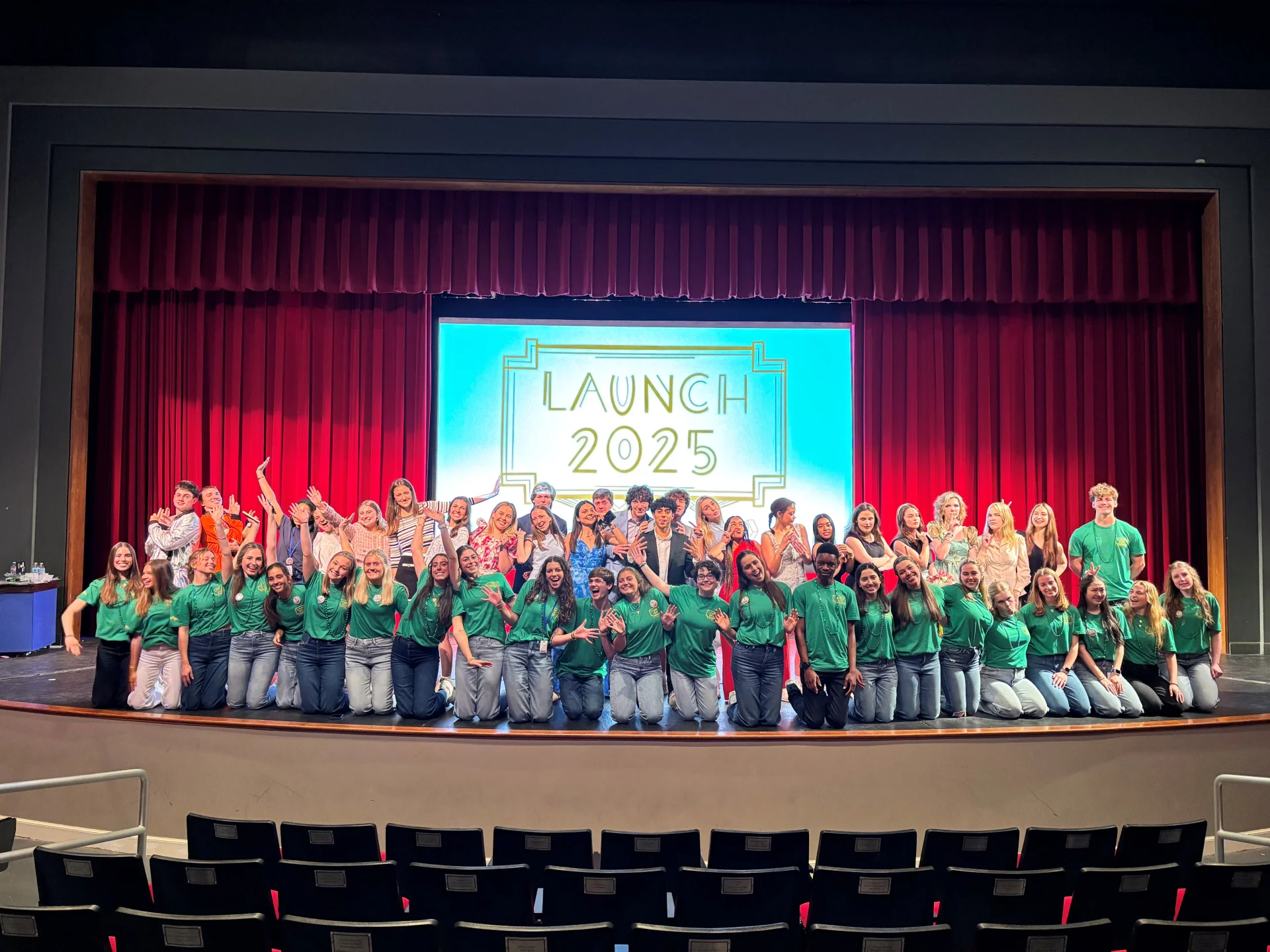 Mar25A Community of Learners Takes the Stage at LAUNCH Day 2025
Mar25A Community of Learners Takes the Stage at LAUNCH Day 2025LAUNCH Day 2025 celebrated student-driven research, innovation and a close-knit community of learners. See how seniors showcased their hard work, creativity and big ideas on stage.
See Details
Categories
- All
- Admission
- Athletics
- College Bound 2019
- College Bound 2020
- College Bound 2021
- College Bound 2022
- College Bound 2023
- College Bound 2024
- College Bound 2025
- Counselors Corner
- Episcopal Alumni
- Giving
- Head Of School
- Lower School
- Middle School
- Spirituality And Service
- Student Work
- The Teachers' Lounge
- Upper School
- Visual And Performing Arts
Recent Articles
- 03/27/25Episcopal Presents "Chicago: Teen Edition"
- 03/27/25Episcopal Announces "The Knight of Excellence" Athletic Banquet
- 03/26/25College Announcements 3.28.25
- 03/25/25A Community of Learners Takes the Stage at LAUNCH Day 2025
- 03/24/25Congratulations to the 2025 Newton Distinguished Faculty Award Honorees!
- 03/21/25College Announcements 3.21.25
- 03/21/25Chase Cresson to Play Football at Morehead State University
- 03/20/25Anna Kate Yale to Compete at Harding University
- 03/13/25From Museums to READBowl: Episcopal Students Embrace the Joy of Learning
- 03/13/25Expanding Academic Support: ARC Fellows Mentor Lower School Students


